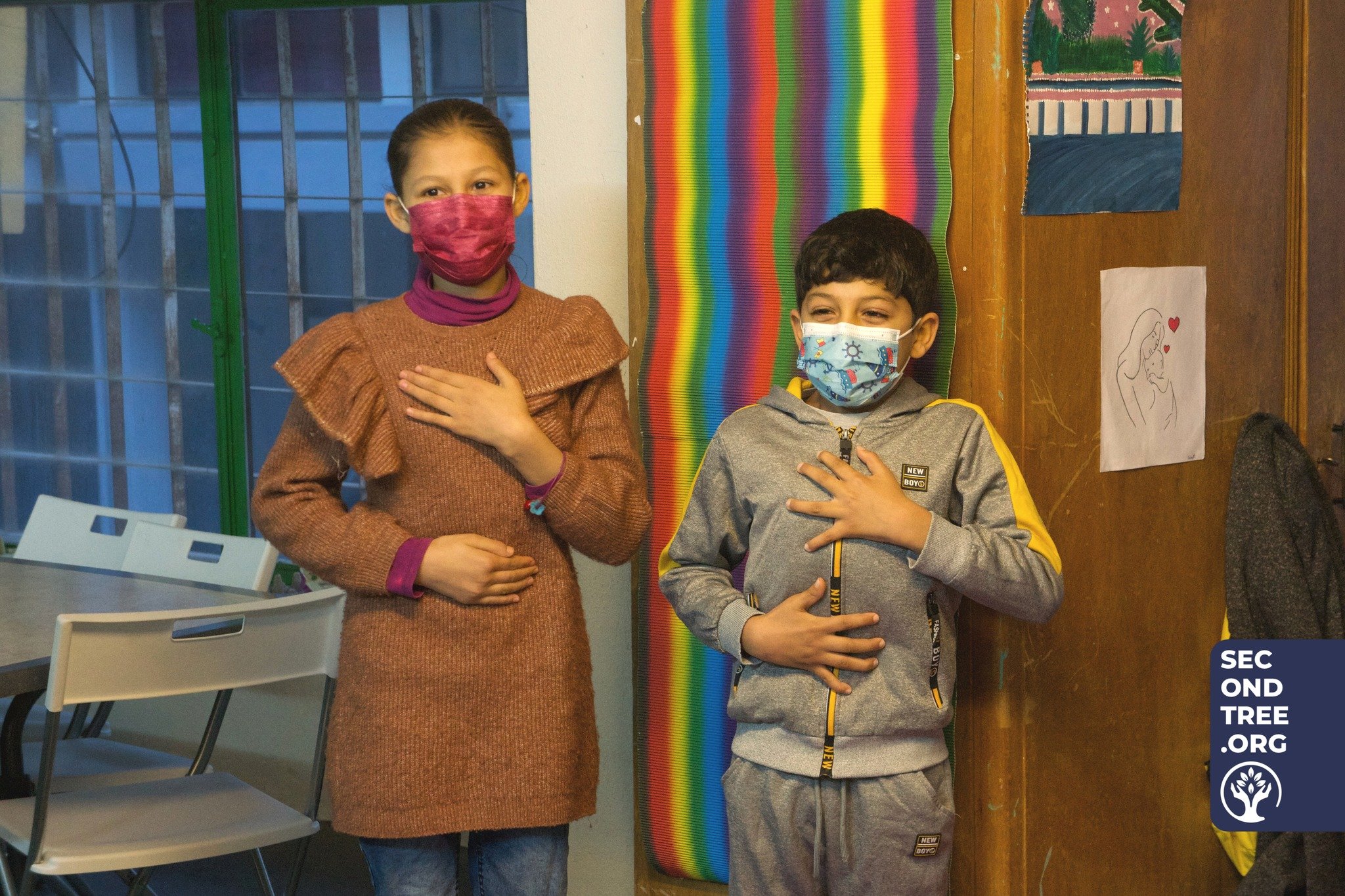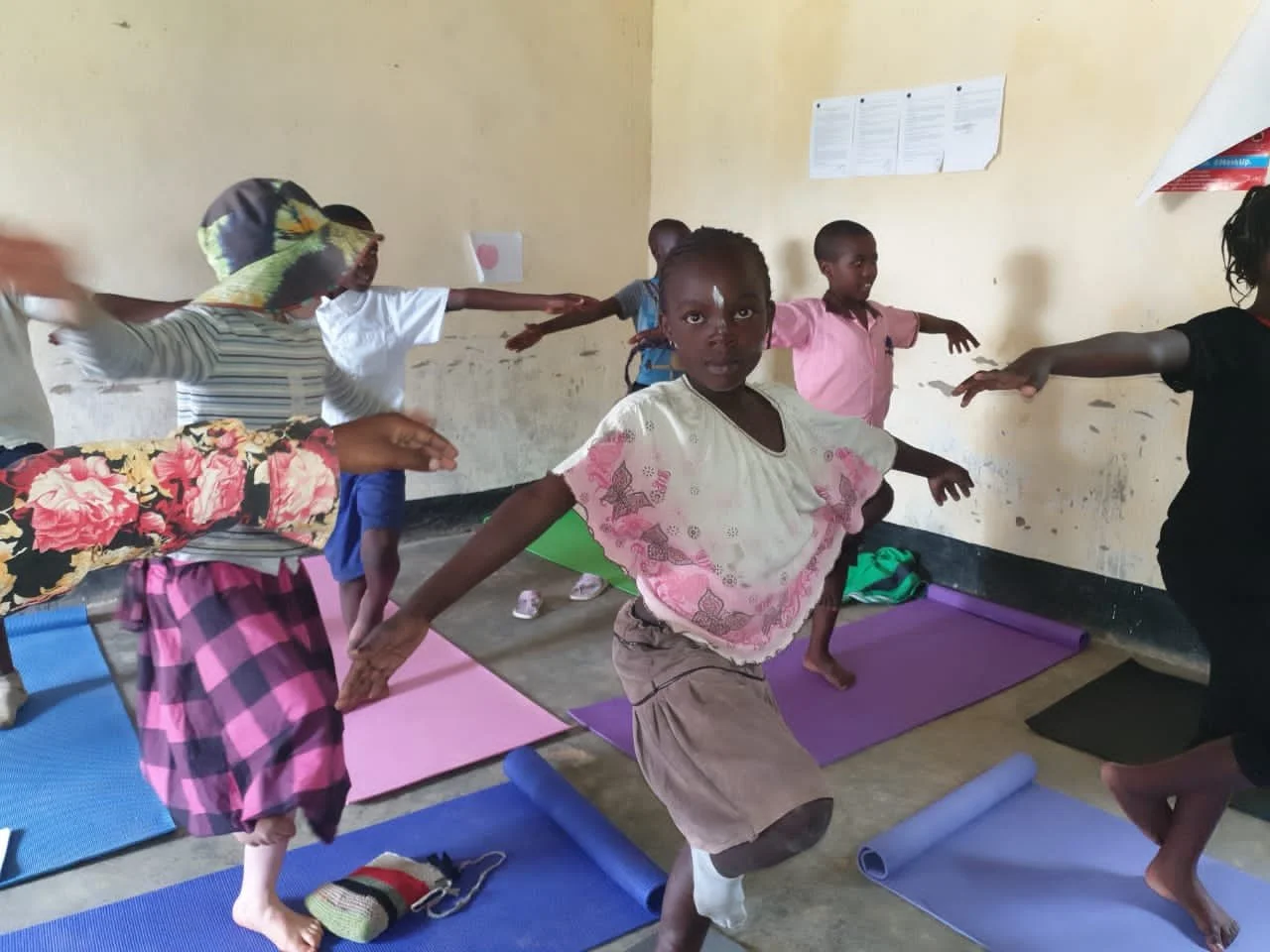
Building
Evidence
Given the dearth of quality SEL resources available, and the growing need for psychosocial support, Amal Alliance has conducted several pilots designed to gather evidence-based research for psychosocial solutions during and post crisis.

MIT Solve / Leap Case Study
February 2023
In response to ongoing learning disruptions and building off of the MIT Solve Re-Engaging Learners Challenge, LEAP seeks to support organizations whose innovations bridge learning gaps for underserved children ages 2-12. Children in vulnerable contexts, such as girls and children experiencing humanitarian crises, made up a disproportionate number of youth outside of formal education systems prior to the pandemic. Two years later, pandemic school closures combined with political instability, economic uncertainty, and climate disasters have left these groups and millions more without access to quality education. In the wake of these learning disruptions, strong, evidence-based innovations are needed to re-engage students and provide them with the educational support they need to thrive.

USAID Case Study
January 2023
This thematic case study explores promising practices in providing psychosocial support (PSS), social and emotional learning (SEL), and access to protection services during and after the COVID-19 response. Of USAID’s six priority areas for COVID-19 response, this theme falls under priority area 3 toward ensuring a safe return to learning, especially for the most marginalized. The theme has been expanded to include SEL services. USAID prioritizes this area as education disruptions “not only impede academic learning, but also have a devastating impact on the wellbeing and safety of learners and educators.”

Harvard EASEL Summary Report
November 2022
The researchers of the EASEL Lab of Harvard Graduate School of Education designed a quasi-experimental study to explore the implementation and impacts of the Colors of Kindness Program in Greece. The evidence collected during the pilot in Greece with both the Ministry of Education and 6 NGOs was conducted from Jan-June 2022. Findings demonstrated an impressive effect size of 0.80 from baseline to endline. Further, evidence showed that the more a student engaged with the Colors program, the higher the increase in SEL skills.

Harvard EASEL Report Launch Video
November 2022
Amal Alliance, the EASEL Lab of Harvard Graduate School of Education, the Institute for Educational Policy (IEP) of Greece, and Porticus present the Summary Report for Colors of Kindness. Colors of Kindness was piloted in Greece during January - June 2022 with the Greek Ministry of Education’s Skills Lab, Learning Equality, and six local NGOs: Arsis, Danish Refugee Council, Drop in the Ocean, Ladies Union of Drama, Lifting Hands International, Second Tree. Findings and results from the evidence based research study were unveiled from respective partners as they shared learnings and best practices from the research, funder, practitioner, and government perspectives.

Nakivale Report
October 2022
Colors of Kindness was piloted in the Nakivale Settlement in Uganda. This second iteration of Colors of Kindness was a pilot in the Nakivale Settlement of Uganda. The Office of the Prime Minister (OPM) Uganda granted permission to Amal Alliance, in partnership with Humanity for All Foundation (HAF Uganda) and the Rotaract Club of Nakivale to implement the program. This report describes the Ugandan context and shows that students reported an averaged increase in SEL skills of 30%. This second iteration further proved the adaptability of the program across regions.

UNHCR Humanitarian Education Accelerator (HEA) Report
January 2021
Colors of Kindness was initially piloted during UNHCR’s Humanitarian Education Accelerator COVID-19 Challenge. It was tested in 4 locations in Bangladesh including the Rohingya camp in Fall 2020 with Friendship NGO. The report outlines how children who participated in the program showed a 16.5% increase in SEL competency during the intervention. While 98% of caregivers said that their child had been more anxious or irritable since the start of the COVID19 pandemic, 99% of caregivers reported that their child’s mood had improved after completing the program. In addition, all the teachers indicated that this program was beneficial for both the children and themselves.

White Paper on Early Childhood
June 9, 2019
Boston University’s Pardee School of Global Studies launched a Capstone Course resulting in Amal’s first ever White Paper on Early Childhood concluded in December. The white paper, which contributes to the growing body of literature, explored the effects of early childhood development.
